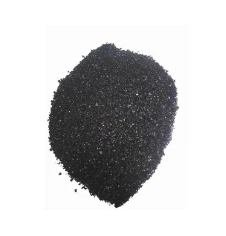indigo dye for fabric service
The Allure of Indigo Dye for Fabric A Timeless Tradition
Indigo dyeing has captivated cultures across the globe for centuries, boasting a rich history that intertwines artistry, craftsmanship, and cultural expression. With its deep blue hues, indigo has become a sought-after choice for fabric dyeing services, appealing to both modern consumers and traditional artisans alike. This article explores the fascinating world of indigo dye for fabric, covering its historical significance, the dyeing process, and contemporary applications.
A Historical Perspective
The use of indigo dates back thousands of years, with archaeological finds indicating its use in ancient civilizations such as Egypt, India, and China. The dye is derived from the leaves of the Indigofera plant, which, when fermented and processed, yields a striking blue pigment. Historically, indigo was a prized commodity, often referred to as blue gold due to its rarity and the complex process involved in its extraction.
In many cultures, indigo dyeing was not merely a craft but a form of cultural identity. For instance, in West Africa, indigo patterns have been integral to traditional textiles, often carrying cultural symbolism and stories. In Japan, the art of shibori—a technique involving intricate folding and binding of fabric before dyeing—has created beautiful patterns that have become synonymous with the country’s textile heritage.
The Indigo Dyeing Process
The process of indigo dyeing is both an art and a science. It begins with the cultivation of the indigo plant, followed by a fermentation process that extracts the pigment. The extracted indigo is then reduced into a soluble form, which allows it to penetrate the fibers of the fabric.
When dyeing fabric with indigo, the material is dipped into the dye bath multiple times. Each dip results in a deepening of color, transitioning through shades of green until it develops its iconic blue hue. The unique aspect of indigo dyeing is that the color continues to change as the fabric oxidizes and dries, revealing rich and vibrant tones.
indigo dye for fabric service

This traditional practice may vary widely depending on geographic location, with artisan techniques reflecting local cultures and aesthetics. The revival of interest in natural dyes has brought indigo dyeing back into the spotlight, allowing modern artisans to experiment with new methods while respecting traditional practices.
Contemporary Applications
Today, the popularity of indigo dyeing is experiencing a renaissance, particularly in the realm of sustainable fashion. As consumers increasingly seek eco-friendly alternatives, indigo's natural origins and biodegradable properties offer a compelling choice. Fashion designers are experimenting with indigo in contemporary clothing, home textiles, and accessories, merging traditional aesthetics with modern styles.
Many fabric dyeing services now offer indigo dyeing options, catering to both individuals and businesses looking to incorporate this rich hue into their products. Workshops and classes dedicated to indigo dyeing are also proliferating, allowing enthusiasts to learn the craft and connect with its history. These hands-on experiences foster a deeper appreciation for the artistry and labor involved in creating indigo-dyed textiles.
Moreover, the revival of interest in indigo underscores a broader movement towards sustainability in the textile industry. With fast fashion's harmful environmental effects, consumers are increasingly mindful of their choices. Indigo dye, with its natural processes and long-standing cultural significance, provides an ethical alternative to synthetic dyes, aligning with the principles of sustainability.
Conclusion
Indigo dyeing is much more than a technique; it is a bridge connecting the past, present, and future. With its deep cultural roots and stunning visual appeal, indigo continues to inspire artisans and consumers alike. As we embrace sustainable practices in fashion and textiles, the enduring legacy of indigo dye serves as a reminder of the beauty found in tradition and craftsmanship. Whether through the hands of a skilled artisan or the offerings of a dyeing service, the allure of indigo dye for fabric remains timeless, inviting us to explore its depths and celebrate its vibrant heritage.
-
Sulphur Black Dyes in Daily Use
NewsMay.07,2025
-
Indigo Dyeing for Daily Life
NewsMay.07,2025
-
Indigo Dye Production and Its Growing Demand
NewsMay.07,2025
-
Color That Lasts
NewsMay.07,2025
-
Bromo Indigo for Modern Use
NewsMay.07,2025
-
Blue From Nature
NewsMay.07,2025
-
The Timeless Color in Fashion and Textiles
NewsApr.10,2025

Sulphur Black
1.Name: sulphur black; Sulfur Black; Sulphur Black 1;
2.Structure formula:
3.Molecule formula: C6H4N2O5
4.CAS No.: 1326-82-5
5.HS code: 32041911
6.Product specification:Appearance:black phosphorus flakes; black liquid

Bromo Indigo; Vat Bromo-Indigo; C.I.Vat Blue 5
1.Name: Bromo indigo; Vat bromo-indigo; C.I.Vat blue 5;
2.Structure formula:
3.Molecule formula: C16H6Br4N2O2
4.CAS No.: 2475-31-2
5.HS code: 3204151000 6.Major usage and instruction: Be mainly used to dye cotton fabrics.

Indigo Blue Vat Blue
1.Name: indigo blue,vat blue 1,
2.Structure formula:
3.Molecule formula: C16H10N2O2
4.. CAS No.: 482-89-3
5.Molecule weight: 262.62
6.HS code: 3204151000
7.Major usage and instruction: Be mainly used to dye cotton fabrics.

